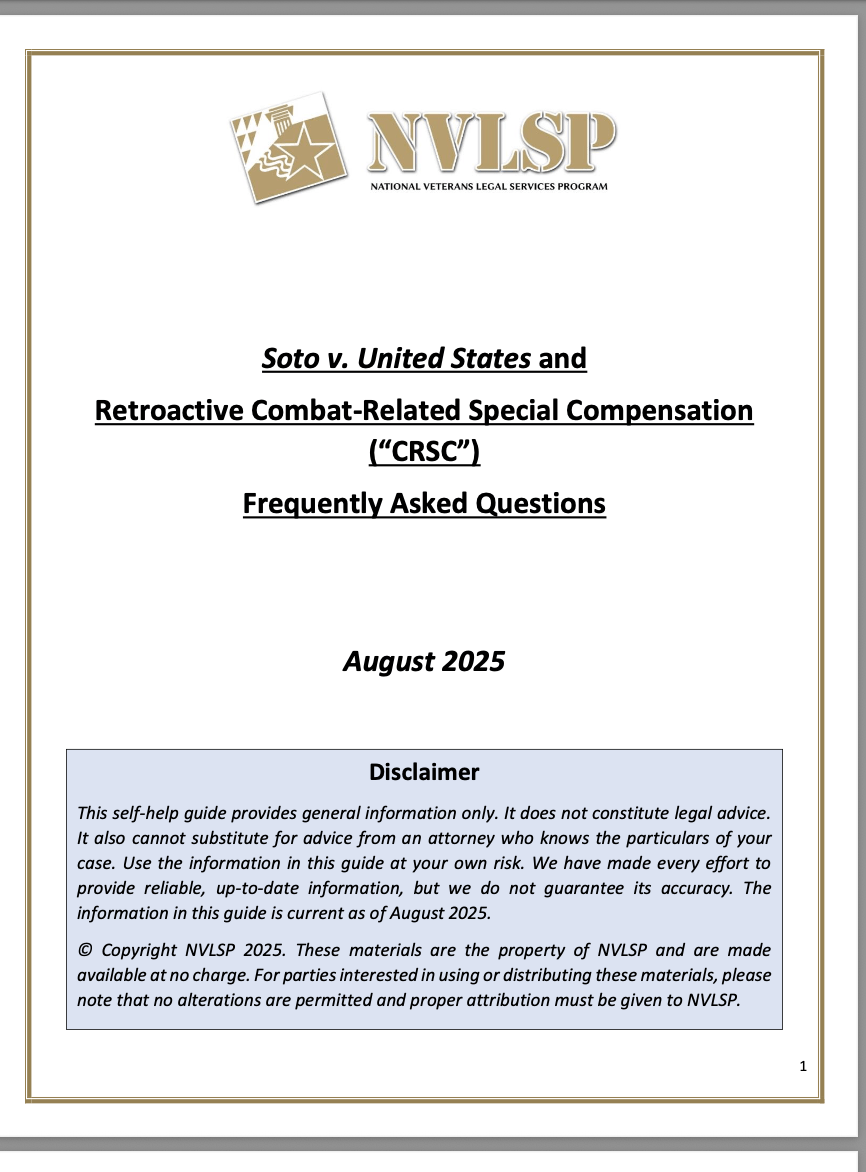GREAT NEW IRS TAX BENEFIT FOR DISABLED VETERANS. An Achieving a Better Life Experience (ABLE) account is a tax-advantaged savings tool for individuals (including disabled veterans who qualify) with disabilities, allowing them to save $20,000 each year without losing federal benefits like SSI, Medicaid, or VA disability! Authorized by the 2014 ABLE Act, these accounts vary somewhat by state, but they generally enable tax-free growth and withdrawals for "qualified disability expenses" such as housing, education, and transportation. Effective January 1, 2026, eligibility expands to those whose disability began before age 46, allowing tax-free growth and withdrawals for housing, healthcare, and education.
Previously, the disability had to begin by age 26, and that left most veterans unable to apply because so many of us became disabled later in life. Fortunately for us, the government moved that qualifying age up to 46 or earlier. For example, I was medically retired at age 45 following the Gulf War, but now am eligible for an ABLE account. There is a veteran-specific web page to learn more. An ABLE account seems ideal for those of us who don't itemize deductions...consult a tax professional wiser than me! An ABLE account is funded with after-tax income, but can also accept gifts and unearned income investment, unlike IRAs which are for earned income only.
Key Details for ABLE Accounts:
Eligibility: Must be a U.S. citizen/US state resident with a qualifying disability (SSA criteria) that began before age 46. 100% VA service-connected disability does not automatically apply, as VA and SSA disability standards are different. The issue is based on inability to work, although some employment is allowed. Checking qualifications online at the Able National Resource Center is an important next step. Each state also has its own info page, and vets can get specific info.
Benefits: Funds in the account are generally not counted against means-tested benefits (like VA, Medicaid/SSI) up to certain limits.
Tax Advantages: Contributions may be deductible from state income tax (they are in Colorado and most states), and earnings grow tax-free. ABLE accounts allow qualified disabled veterans to save up to $20,000 annually (2025/2026) without jeopardizing means-tested benefits like Medicaid or VA disability or pension, provided their disability occurred before age 46 (as of Jan 2026). Funds grow tax-free and can be used for qualified disability expenses, including housing, transportation, and healthcare. Property taxes and mortgage payment are typically included in the "housing" category.
Key Details for Disabled Veterans' ABLE Accounts
Eligibility Expansion: As of January 1, 2026, the age of onset for the disability increased from 26 to 46, making millions more, including many veterans, eligible.
Protection of Benefits: ABLE accounts allow for savings that do not count against the individual resource limit for SSI or other means-tested programs, such as the VA non-service-connected pension.
Definition of Disability: You must meet the Social Security Administration's (SSA) definition of "marked and severe" functional limitations, or have a signed physician's certification. You do not need to be receiving Social Security disability benefits to qualify, Additionally, if you were on SSDI but "aged-out" at 65, that's considered qualifying.
Qualified Expenses (QDEs): Funds can be used tax-free for a wide range of expenses, including education, housing, transportation, healthcare, prevention of homelessness, and employment training.
Contribution Limits: In 2026, the annual contribution limit is $20,000 which may increase annually. The current maximum in an account is limited to $100,000.
Account Setup: Veterans can open an account in any state that accepts out-of-state residents, with many offering online enrollment.
Eligibility:
Eligible for your state's ABLE account
US citizen and state resident
New accounts must be opened by June 30, 2026.
The account must be in good order to receive funds.
Funds can be dispersed the following month from when the account was opened.


















